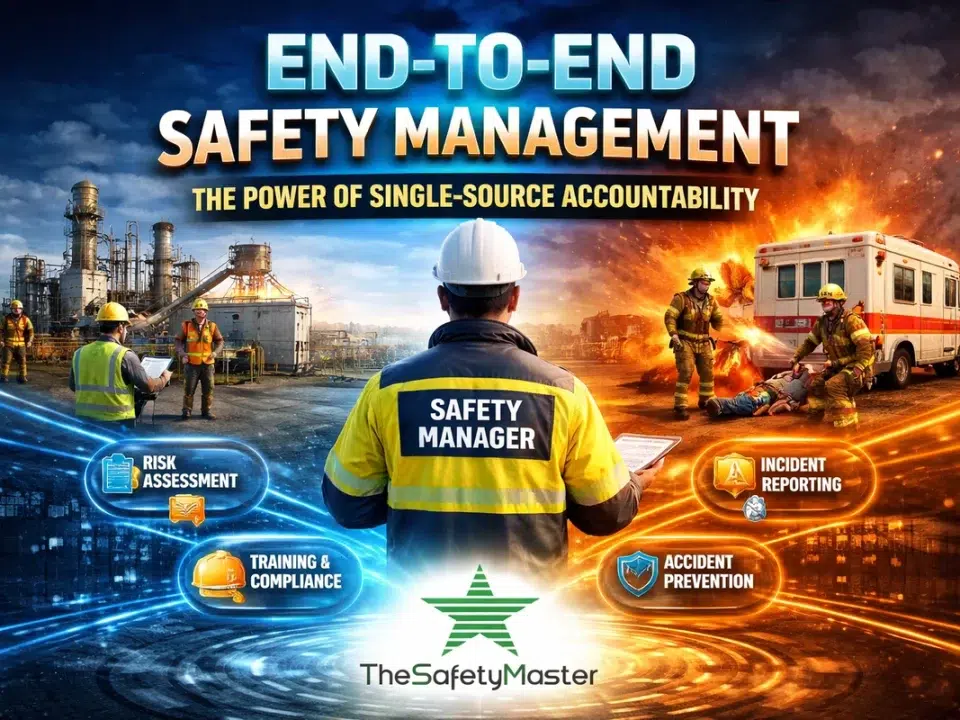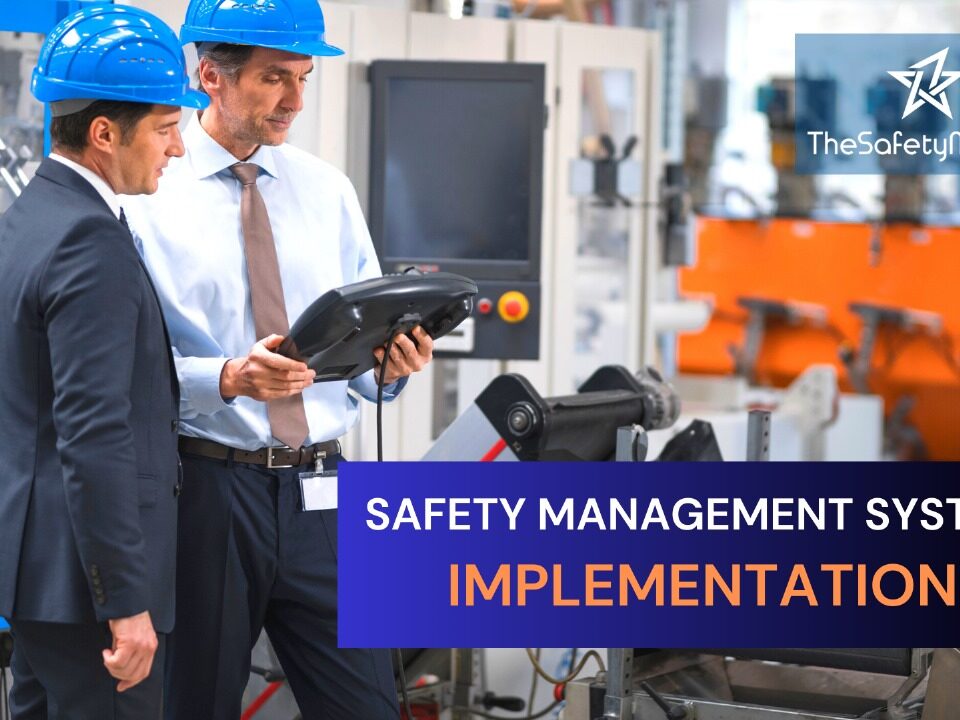Process Safety Audits – What Every Factory Must Know

Why Annual Safety Audit Is Essential for Compliance in Telangana & Andhra Pradesh: Checklist for 2025
December 11, 2025
Fire Fighting Training: Building Skills & Preparedness for Emergency Response
December 16, 2025Industrial safety isn’t just about compliance—it’s about sustainability, efficiency, and protecting both people and production. In rapidly growing industrial cities like Vadodara and Ahmedabad, factories span sectors from petrochemicals to pharmaceuticals, textiles to heavy engineering. Each of these sectors deals with complex processes and potential hazards that demand more than just basic safety checklists. This is where a comprehensive Safety Audit Service becomes indispensable.
Understanding the Role of Process Safety Audits
A process safety audit goes beyond routine inspections. It assesses how well safety systems, operational procedures, and risk management frameworks are integrated into the factory’s daily operations. It identifies vulnerabilities in design, maintenance, and human behavior that could lead to accidents or operational disruptions.
These audits examine crucial areas such as:
- Chemical handling and storage practices
- Emergency shutdown systems
- Equipment integrity and preventive maintenance
- Fire and explosion risk management
- Compliance with environmental and occupational regulations
Factories in Vadodara and Ahmedabad often handle hazardous materials, making a detailed review of containment systems, pressure relief devices, and emergency response protocols absolutely critical.
Why Safety Audits Matter in Gujarat’s Industrial Belt
Gujarat’s industrial strength is also its biggest responsibility. Cities like Vadodara and Ahmedabad have witnessed rapid industrial expansion, and with it, increased operational complexity. Process safety audits help companies maintain control as systems evolve, technologies upgrade, and teams expand.
Here’s why these audits are non-negotiable for modern manufacturing units:
- Regulatory Compliance – Meeting the safety standards set by the Directorate of Industrial Safety and Health (DISH) and other authorities is mandatory. Non-compliance can lead to penalties or shutdowns.
- Accident Prevention – Identifying unsafe conditions before they escalate saves lives and prevents costly disruptions.
- Operational Efficiency – A well-audited plant runs smoothly, with fewer equipment failures and optimized processes.
- Reputation and Trust – Customers, insurers, and stakeholders place greater trust in companies that maintain transparent safety records.
Key Elements of a Process Safety Audit
A professional audit is systematic and multidisciplinary. It involves document reviews, on-site inspections, interviews, and performance testing. The following elements form the foundation of an effective audit process:
1. Management System Evaluation
The audit begins with an assessment of the organization’s overall safety management system—its leadership commitment, communication structure, and documentation practices.
2. Risk Identification and Analysis
Potential hazards are identified based on the materials used, processes involved, and site layout. The audit evaluates how well the organization identifies, quantifies, and controls these risks.
3. Equipment Integrity and Maintenance
Every critical component—pumps, compressors, valves, pressure vessels—is checked for wear, calibration, and maintenance records. Poor maintenance is one of the leading causes of industrial accidents.
4. Emergency Preparedness
From fire drills to chemical spill responses, the audit reviews how well-trained employees are to respond to emergencies. It also assesses the availability and accessibility of safety equipment and evacuation routes.
5. Training and Competence
Employees’ understanding of safety procedures is evaluated, ensuring that training programs are current and effective. Continuous learning is vital in industries that frequently adopt new technologies or materials.
Behavior and Human Factors in Industrial Safety
Even the best systems fail without safe behavior. Human error is responsible for a significant portion of industrial incidents. That’s why many factories in Gujarat have adopted Behavior-Based Safety Training programs.
This approach focuses on:
- Observing employee behavior during regular operations
- Providing constructive feedback and reinforcement
- Encouraging peer-to-peer accountability
- Building a proactive safety culture where everyone takes ownership
By addressing human factors, organizations can bridge the gap between written procedures and real-world performance, drastically reducing unsafe acts and improving morale.
The Importance of Fire Safety Audits
In chemical and manufacturing facilities, fire hazards are constant threats. Conducting a Fire Safety Audit ensures that fire detection, prevention, and suppression systems are functioning as designed.
These audits typically cover:
- Adequacy of fire exits and escape routes
- Condition and placement of extinguishers and hydrants
- Electrical safety checks to prevent short circuits
- Availability and testing of fire alarms and sprinklers
- Employee awareness and fire drill participation
Factories in Vadodara and Ahmedabad, where flammable materials are common, benefit immensely from such specialized audits. Fire audits don’t just assess systems—they create readiness.
The Role of HAZOP in Process Safety
One of the most advanced techniques used in process risk analysis is HAZOP (Hazard and Operability Study). It is designed to identify potential hazards during the design and operation stages of industrial processes.
Professionals trained in HAZOP Training understand how to systematically examine process parameters—like pressure, temperature, and flow—to detect deviations that could cause harm.
HAZOP studies help industries:
- Recognize hazards early in process design
- Improve equipment layout and interlocks
- Reduce the likelihood of major accidents
- Enhance team collaboration between engineers and safety managers
In Gujarat’s chemical industries, where processes often involve high temperatures and pressures, HAZOP serves as a cornerstone for risk mitigation.
Common Audit Findings in Vadodara and Ahmedabad Factories
From years of industrial safety work in the region, certain recurring gaps appear across factories:
- Outdated standard operating procedures (SOPs)
- Poor documentation of maintenance activities
- Insufficient safety signage and labeling
- Inadequate employee safety induction programs
- Limited incident investigation and corrective tracking
- Overlooked fire safety equipment maintenance
Addressing these gaps not only ensures compliance but also enhances operational continuity.
How to Prepare for a Process Safety Audit
Preparation is key to an efficient and transparent audit. Factories should:
- Review Documentation: Keep all licenses, inspection records, and SOPs updated and accessible.
- Conduct Internal Pre-Audits: Identify potential gaps before the official audit.
- Engage Employees: Educate teams about the purpose of the audit to encourage cooperation.
- Rectify Known Issues: Address any existing non-compliances before external evaluation.
- Plan Follow-ups: Ensure corrective actions are implemented promptly post-audit.
The Long-Term Value of Regular Audits
Safety audits are not one-time events. They form part of a continuous improvement cycle. Factories that conduct regular audits benefit in multiple ways:
- Lower insurance premiums due to proven risk management
- Reduced downtime and maintenance costs
- Better employee retention and satisfaction
- Improved corporate image among clients and partners
Investing in audits also supports environmental sustainability by reducing waste, emissions, and unplanned releases.
Why Choose Professional Auditors
Engaging experts ensures that audits are unbiased, thorough, and compliant with the latest industrial standards. Experienced auditors bring multidisciplinary expertise—mechanical, chemical, environmental, and human factors—ensuring every corner of your operation is reviewed.
The Safety Master, a pioneer in industrial risk management, has been assisting companies across India with customized safety solutions. From Safety Audit Service to specialized training programs, the organization focuses on helping industries build safe, sustainable, and high-performance work environments.
The Way Forward for Gujarat’s Industries
With Gujarat leading India’s manufacturing growth, it’s crucial that safety evolves alongside technology and production capacity. Factories in Vadodara and Ahmedabad must treat process safety audits as strategic investments rather than regulatory burdens.
Incorporating advanced tools like digital inspection systems, real-time risk monitoring, and predictive maintenance can make audits even more valuable. More importantly, integrating behavioral safety and regular refresher training ensures that every worker—from operators to management—acts as a guardian of safety.
Conclusion
Process safety audits serve as the backbone of industrial reliability and worker protection. In regions like Vadodara and Ahmedabad, where industrial activity thrives, these audits help prevent disasters, boost efficiency, and create a culture of responsibility. Whether through structured risk assessments, Behavior-Based Safety Training, or HAZOP Training, a robust audit and training framework protects more than assets—it safeguards people and progress.
Factories that proactively embrace safety audits aren’t just compliant; they’re future-ready.




